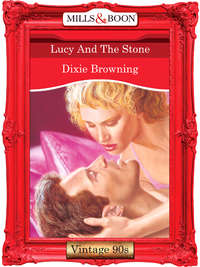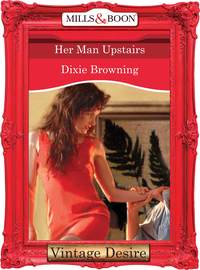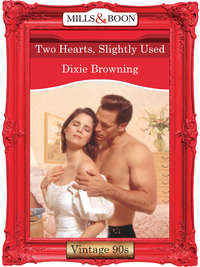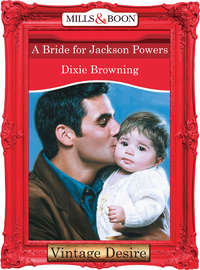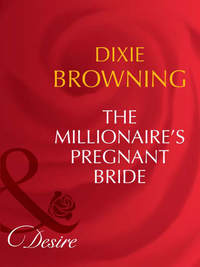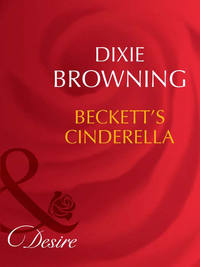
Полная версия
Rocky And The Senator's Daughter
The congressman’s sleazy affairs had been too commonplace to sustain a media barrage for long, once it was determined that national security was not at stake. The mess had sprung up again briefly a few months later when Sullivan had taken dead aim at a bridge abutment and totaled both himself and his car. Shortly after that, Sarah Mariah dropped out of sight.
That must have been about the same time that Rocky himself had dropped out. One way of putting it. He had watched Julie’s final decline. He had cried. He had read until he couldn’t face another book. He’d watched an entire season of baseball, his own brand of opiate. When he’d realized he was drinking too much, he had quit cold turkey. All things considered, it hadn’t exactly been a banner year.
A few nights after Dan Sturdivant’s retirement party, Rocky was watching the news and toying with the idea of doing a series of columns when he caught a thirty-second teaser for a daytime talk show featuring Binky Cudahy, author of the upcoming bestseller, The Senator’s Daughter’s Husband’s Other Women.
That’s when it hit him. Wherever she’d gone, whatever kind of a life she had managed to salvage for herself, the congressman’s widow was probably going to come in for some unwelcome attention once the book hit the stands. Did she even know about it? Did she watch daytime TV?
For all he knew she might be lying on the sand soaking up sun on some tropical island by now. God knows, she deserved a break.
But she also deserved to know what was headed her way, in case she needed to duck. Rocky knew he could find her. He’d put in too many years as a reporter not to have sources. Although why he should feel this proprietary interest in a woman he’d met only one time, and that more than twenty years ago, he couldn’t have said. Maybe because there was a big, gaping hole where his life used to be.
Well, hell…the least he could do was give her fair warning that the buzzards would soon be circling again.
Two
Sarah Mariah flexed her sore hands and examined the newest crop of injuries. The mashed thumb had been yesterday. The sprained little finger several days before that. Today’s scratches were only a minor irritation, but honestly, she was going to have to do better. Good thing she’d had her tetanus booster.
All she’d been trying to do was untangle the wild grapevines from the shrubs that had been allowed to grow unchecked for decades. It wasn’t as if she’d been tackling a jungle with her bare hands. The shrubs were threatening to lift the eaves, but she couldn’t even prune the blamed things until she could get rid of the blasted vines.
Still, if stiff hands and a few scratches were the worst she had to show for today’s work, she’d consider herself lucky. She was still scratching chiggers, and last week she’d had to go after a tick in an inaccessible place with a mirror and a pair of tweezers. Living alone had its drawbacks, but the upside definitely outweighed the downside.
She poured herself a glass of milk and made a salsa and mozzarella sandwich on whole grain bread, feeling righteous because she would rather have had a bacon-cheeseburger with fries. Taking her tray into the parlor, she kicked off her shoes and sprawled out in a recliner that was half a century newer than the rest of her great-aunt’s furniture. It was one of the few really comfortable pieces in the house.
There was a TV on a spool-legged table. It had died a natural death several years ago and had never been replaced. Sarah had no intention of having it repaired, although she might decide to free up the table for a potted plant. She had a weather radio and a subscription to the Daily Advance. Those, plus weekly trips to the grocery store and sporadic trips to the post office filled her needs for contact with the outside world. If World War III or a tornado threatened, she trusted one of the neighbors to warn her.
It had come as no great surprise that her late great-aunt’s lifestyle suited her far better than life in suburban D.C. Sarah had hated Washington, hated the whole political scene. But then, she hadn’t chosen it, she’d been born into it. And then she’d had the poor judgment to marry into the same circles. She would like to think she had played her role competently, if with a distinct lack of enthusiasm, right to the end.
During her father’s ordeal, Stan had been worse than useless. He’d practically fallen apart. On the few nights when he stayed in, he was drunk by the time she served dinner. She hadn’t understood at the time why he’d seemed almost panicked. He couldn’t possibly have been involved, she’d reasoned, because if he’d been a part of anything illegal they would have quickly discovered it. He’d had flawless manners and the face of a sexy choirboy. That guileless grin alone had brought in the women’s votes. He’d seemed so open, so honest—such a refreshing change from all the others. She remembered once trying to reassure him by telling him not to feel guilty, that none of her father’s crimes was his fault. His only sin was being married to the senator’s daughter.
She’d said it with a smile—or as much of a smile as she could manage—but he hadn’t said a word, either in his own defense or hers. Not that she’d expected him to defend her father. What the senator had done was indefensible. But he might at least have absolved her of the guilt of being J. Abernathy’s daughter.
He hadn’t. A year or so after the Senate hearings, when her husband had started behaving oddly, she had tried to be understanding. After all, it had been an ordeal for him, too. She remembered thinking that once his term ended she would try to talk Stan into selling the house they’d just purchased and not running for office again. They could go somewhere—anywhere—and start over.
Then the dam had burst and it had happened all over again. The same nightmare, only this time it was even uglier. For the first few days she had been in denial. When she’d been forced to confront the truth—when her husband, in a rare sober moment, had confessed to everything—she’d been devastated. Addie, the old housekeeper who was the nearest thing to a mother she’d had since Mariah Jones had died, had been ready to retire to South Carolina with her granddaughter when the senator’s troubles had begun. She had stayed on for Sarah’s sake and then returned when Stan’s scandal had broken, knowing how desperately Sarah would need her.
While every dirty little secret in her husband’s life—every secret but one, thank God—had been exposed, the senator had chosen to hole up in a beach house in North Carolina belonging to his friend, lawyer-lobbyist Clive Meadows. There’d been no reason to expect him to stand by her—he’d never been there for her at any other time in her life, but she could have done with a bit of moral support.
Looking back, Sarah knew he’d made the right choice. His presence would only have stirred up the past. One scandal at a time was all she could deal with.
Thank God for Great-Aunt Emma’s legacy. Sarah had visited her maternal grandmother’s sister several times as a small child and fallen in love with the stark old farmhouse. The tiny community of Snowden, North Carolina was only a short distance off the highway they always took driving down from Washington to Duck, on the Outer Banks, where her father had the use of Clive’s palatial beach house.
When her mother had still been living and the two of them used to go to the beach without the senator, they had usually stopped to visit her mother’s only relative. On rare occasions they stayed overnight. Sarah had been eleven the last time they’d spent an entire weekend. She remembered waking in the night with a terrible ache in the pit of her belly and being certain she was about to die. Hearing her crying, both Aunt Emma and her mother had hurried to her room.
“Mariah Gilbert, didn’t you even tell the child what to expect?” Emma had demanded. Her great-aunt had never liked the senator, and preferred to ignore the fact that her niece had married him.
“They teach that sort of thing at school, Aunt Emma. I’m sure she knows all about it, don’t you, darling?”
All Sarah had known was that she was dying. It had been Emma who had explained that her body was preparing her to be a mother. And that, she remembered, had terrified her even more than the bellyache.
But between the two women they had made her understand that what she was feeling, while unpleasant, was perfectly normal. Then Aunt Emma had brought her a cup of hot, sugared and watered-down whisky, while her mother had located and filled an old rubber hot-water bottle.
After that they hadn’t stopped as often. Her mother was diagnosed with leukemia, and Sarah had all but forgotten her great-aunt over the next few years. When Mariah had died, Emma had gone to the funeral, driven there and back in a single day by a neighbor. Sarah had had only a few minutes alone with her. J. Abernathy, distraught over the loss of the wife he had neglected for years, had insisted on having his daughter constantly at his side.
The two women had corresponded, though. Sarah had kept every one of her great-aunt’s letters. When Emma had died at the age of eighty-four, she’d left her entire estate, consisting of a house, a Hudson automobile up on blocks in the shed, and sixty acres of land, partly wooded, partly under cultivation, to her great-niece, Sarah Mariah.
It was almost as if she’d known that one day soon Sarah would need a place of her own. The senator—he was still called that, even after being forced to retire in disgrace—had the place on Wye River, but he’d given up the Watergate apartment where she’d practically grown up. Sarah and Stan had bought a tiny house in Arlington, but they’d had to sell it to pay his lawyers. To Stan’s credit, he wouldn’t allow her to go into the small trust she’d received from her mother, much less sell Aunt Emma’s house.
Her father had been no help at all, either financially or emotionally, but she hadn’t expected anything from that source. In the end, Sarah had been left with the one thing she valued more than anything in the world.
Privacy. A place of her own where she could retreat, where the world couldn’t follow. And if that included loneliness, so be it. She had cut off her friends early on during the first scandal—those that hadn’t already cut her. Here the neighbors were few, the closest being almost a mile away. If any of them had connected Emma Gilbert’s great-niece-who-married-that-nice-congressman with the recent Washington scandals, they never mentioned it. But then, they weren’t inclined to drop by for coffee and gossip.
She missed her old friends, missed the volunteer work she’d been doing for years—the children she’d worked with. Now she kept to herself, paid her utility bills and made the monthly payment to the grandparents of her late husband’s secret illegitimate daughter.
What Stan had been involved in had been depraved by anyone’s standards to the extent that his political future had been shattered beyond repair. One of the participants had been a juvenile at the time. Her name had not been released, but shortly before Stan’s fatal wreck she had called to tell him she’d just had his baby and now she needed money. Utterly distraught, Stan had promised to send what he could, even though at the time they’d been scraping the bottom of the barrel to pay for his defense. He had hung up the phone, blurted out the whole pathetic story, then buried his head in Sarah’s lap and cried.
“She…she named her K-Kitty. Oh, God, Sarah, what have I done?”
“Shh, we’ll deal with it. Maybe when this is all over we can adopt her.”
But before they could make any arrangements, Stan had been killed. By then, a sixteen-year-old girl from Virginia Beach who claimed Stan had fathered her child had been the last thing on Sarah’s mind.
Somehow she had managed to get through the following days and do all that needed doing. Her father’s old friend, Clive Meadows, had been a big help. The day after the funeral, when a man named Sam Pough had called, claiming his daughter had run off and left him and his wife stuck with her bastard, it had actually taken her several minutes to sort it all out.
If Clive had been there at the time, she probably would have simply handed him the phone and let him handle it. Later on, when she’d had time to think, she was glad she’d been alone. She remembered taking so many deep breaths she had grown dizzy. Once her head had cleared, she’d heard herself calmly promising to send an initial sum and make monthly payments as long as the grandparents promised to look after the baby. They were decent, God-fearing people, the man had repeated several times, but their trailer was too old, too small, and their social security would stretch only so far.
Sarah had done the best she could. By liquidating her trust fund, she’d been able to send a sizable check to cover the cost of a new mobile home. Since then she’d sent monthly payments with the understanding that those payments would continue only so long as the child was well cared for and her identity remained a secret. No child, she told herself, should have to grow up bearing the stigma of a father’s disgrace.
As time passed with no further contact from the Poughs, Sarah had made herself learn to relax. It wasn’t that easy, in spite of having left the past behind and moved to the country. Growing up as her father’s daughter, she’d been expected to dress a certain way, to behave a certain way—to go to the right schools, the right summer camps—to smile at appropriate moments, and to express herself only on noncontroversial topics.
Once she’d become the congressman’s wife there had been a whole new set of expectations. Never once had anyone asked her personal opinion on an important issue. And she most definitely did have opinions, on any number of issues. Nor did they agree very often with those of her father or her husband.
Never once in her entire life could she recall being asked how she would have preferred to spend her vacations. Given a choice, she might have chosen to attend a fiddlers’ convention with her college friends, sleeping in tents, wandering from campfire to campfire listening to the music, sharing food and easy companionship. Instead, she had spent every vacation with one or both of her parents, usually at Clive’s beach house, surrounded by other adults.
Instead of flying lessons, she had taken piano lessons. Instead of choosing her own friends, she’d had appropriate ones chosen for her, at least until she’d gone off to school.
It wasn’t that her childhood had been unhappy, it was just that she’d never been allowed off the leash long enough to discover who she was. And now that she was free to be herself, she didn’t know where to begin, other than wearing thrift-shop jeans, going barefoot and drinking water from her own tap instead of what her Aunt Em had called store-bought water. After a lifetime of pleasing others, she had only herself to please, and the most rebellious thing she had done so far was to stay up half the night reading and then sleep until noon the next day.
These days she couldn’t even manage that. Since she’d started on the long-overdue yard work, tackling one square foot at a time, she was usually so tired she fell asleep in the recliner.
Dull was a matter of degrees. Her life had always been—well, until a little over two years ago—dull, as in boring. Now it was dull as in restful. As in taking time to sniff the roses, not to mention the honeysuckle and corn tassels and whatever else grew in the country. As in trying her hand at writing and illustrating a special story for a little girl she would probably never even get to see.
But right now—at least once she’d caught her breath—it was time for another attack on that blasted board on her front porch that she’d tripped on at least a dozen times. Tomorrow would be time enough to free the rest of her shrubbery from the strangling clutches of those voracious vines.
After rubbing aloe lotion onto her hands, she picked up the daily paper published in the nearby riverside town. Sipping her milk, she skimmed articles about people she didn’t know, who didn’t know her. There wasn’t a speck of world news, rarely even a political commentary. She liked it that way. She read the obituaries of people she’d never heard of, wedding announcements for young hopefuls who had no idea of the pitfalls ahead. She read notices of fiftieth wedding anniversaries, wondering if the couples knew how fortunate they were, and tried not to feel sorry for herself. Given a choice, she knew she would never go back to her old life.
She read about club meetings and historical reenactments and the progress being made on the town’s museum. She read about an art show and a moth-boat regatta and considered attending. Mingling with real people again.
One of these days she was going to have to return to the real world and find work. Find some way to make her liberal arts degree support her, because Kitty’s needs would continue to grow—clothes and schools and health insurance. Her trust fund wouldn’t last much longer at the rate she was depleting it, but she refused to accept a penny from her father. Not that he’d offered. Where J. Abernathy Jones was concerned, every penny came with strings attached.
One string, she suspected, led to Clive Meadows. She’d known Clive for years. It was his beach house they always used. She had met only one of his three wives and been shocked that the girl was so young.
Not surprisingly, she rarely liked her father’s friends. Clive was no better, no worse than most. Once, before she’d married Stan, when Clive was between wives, he had asked her out to dinner. She had declined. A few nights later he’d invited her to a concert. She had thanked him and pleaded another engagement.
Her father had been in Scotland when Stan had been killed in a one-man accident that had been deemed a suicide. Clive had been there to offer comfort and professional advice, to steer her through the formalities. At the time she had gratefully accepted his help.
But as for anything more, Sarah, at age thirty-seven, was far too old for a man of his tastes—his wives had been barely out of their teens. Of course, she might have imagined his interest. Distraught, she could easily have read too much into a few innocent shoulder pats, a few avuncular hugs and the offer, after Stan’s private memorial service, of a quiet month at his beach house at Duck.
At any rate, she was safe now, and as long as she could continue paying for Kitty’s needs and stretch what was left to cover the necessities—food, books, utilities and property taxes—she intended to stay put. Loneliness was a small price to pay for peace of mind.
Rocky rounded a sharp curve on the narrow highway, humming along with something or other by Sibelius. Years out of practice, he hit only about every fifth note correctly, but then, that was between him and the composer, and the old guy wasn’t complaining.
He felt good about what he was doing. Righteous, in fact, which was a big improvement over feeling nothing. Thank God something had come along to drag him out of his lair.
It had already occurred to him that someone else might have already warned her. But in case they hadn’t, she needed to know what was about to hit the fan. It probably wouldn’t amount to much more than a few jokes on Leno and Letterman, a few sound bytes and film clips—maybe a rehash in the tabloids. After a week at most, the whole thing would die a natural death, but meanwhile, a heads-up might be appreciated.
Besides which, he’d needed a mission. Lately he’d been aware of a growing sense of restlessness. The trouble with being a retired journalist was that the brain refused to retire.
Okay, so he would warn the widow and while he was in the area he might look around for something to quicken his interest. Frontline reporting from the agricultural scene? He could do an investigative piece on the pork industry, maybe hang it on the hook of environmental pollution versus genetic engineering. Would reshuffling a few pig genes render hog lagoons obsolete?
He whistled along with the familiar theme of “Finlandia” and wondered how long it had been since he’d whistled. Or hummed anything. Once an enthusiastic sing-alonger, it had been years since he’d been enthusiastic about anything.
When his watch beeped at noon, he switched off the CD and turned on the news.
“—at Camp David. The meeting is scheduled to cover—” He changed stations and caught the tail end of a report on the latest airline disaster, waited through a string of commercials and heard the farm report. Nothing about the Cudahy book. Maybe he’d overestimated the threat. It might not show up at all in this particular market. Even so, it was about time for the publisher to start chumming the waters if they hoped to see people lined up outside the bookstores, money in hand, on laydown day.
Meanwhile, he’d do well to work on his tactics. “Mrs. Sullivan, I’m an independent journalist, and I’ve come to warn you about—”
Yeah, right. Considering what she’d been put through these past few years, that might not be the best approach. Direct was his favored method, but direct in this case would probably get him kicked out on his keester. The lady had no reason to welcome the press.
Of course, it wasn’t too late to call it off. He could go back to Chevy Chase, refreshed from spending a day in the country, and either watch a few more ball games or start on his version of the Great American novel. The story of how one cynical journalist, semi-retired, discovered a way to put an end to all turf wars, ethnic vendettas and ideological battles.
But as long as he was in the neighborhood, he might as well pay his respects to Mrs. Sullivan. Maybe she’d offer him a cup of tea.
Or a cream cheese sandwich.
Finding her had been easy enough. He was not, after all, without investigative skills. According to the ex-senator’s yard man, she had not been to the Wye River place in nearly a year. None of her former friends had offered a clue—of course, they might have been in protective mode. Taking the next logical step, he had checked out public records. Wills, taxes, tax maps.
Bingo. If he could do it, it was a sure bet he wouldn’t be the only one. Sleazy exposés were a dime a dozen. They seldom changed the course of history, but they could generate a few column inches in the tabloids and make life miserable for the victims before they were bumped off the lists by the next contender.
Discounting their one brief encounter, Rocky really didn’t know Sarah Mariah Jones Sullivan at all. By now she might even welcome the attention. But if she was anywhere as vulnerable as she’d looked during the hearings—as she’d struck him that day over twenty years ago when she’d watched her father use her and discard her as casually as he would a soiled tissue—then maybe she could use a friend.
And if he happened to have guessed wrong about which way she’d jumped—if she was kicking up her heels in some fancy resort instead of hibernating in corn country—no problem. He’d needed an excuse to get out. Needed to start getting involved again.
Slowing down, he took the Snowden turnoff, rounded a blind curve on a narrow blacktop, crossed over a railroad track and began looking for a dirt road that led off to the right. The only sign of life was a big buck deer and a flock of gulls following a tractor, reminding him that they were only a mile or so from Currituck Sound.
He spotted the dirt road and turned off, driving slowly. Tax maps didn’t reveal a whole lot of detail, but there was supposed to be another road of some sort.
And there it was. Two leaning posts, one supporting a newspaper box, the other a mailbox. The name on the mailbox said Gilbert, which, if memory served, was the name of the relative whose house Sarah had inherited. Rocky pulled off the road and parked behind a dusty red compact. After a moment’s hesitation he set the brake, locked his eight-year-old SUV and set out on foot down the winding, rutted lane. He’d gone barely a dozen yards when he spotted a guy armed with a videocam jogging toward the house.


